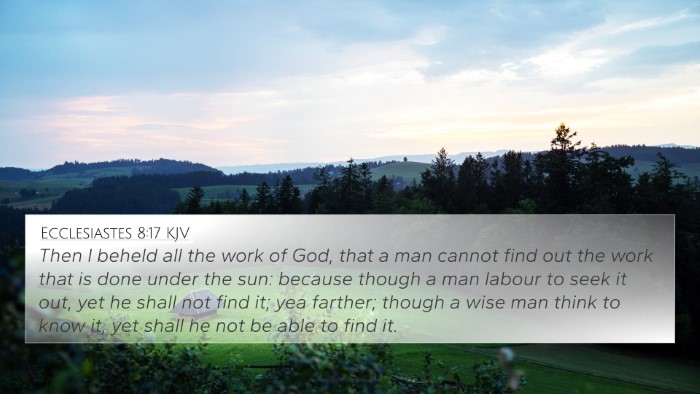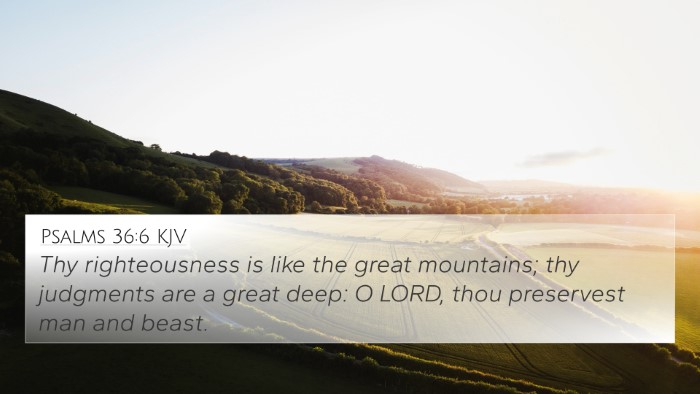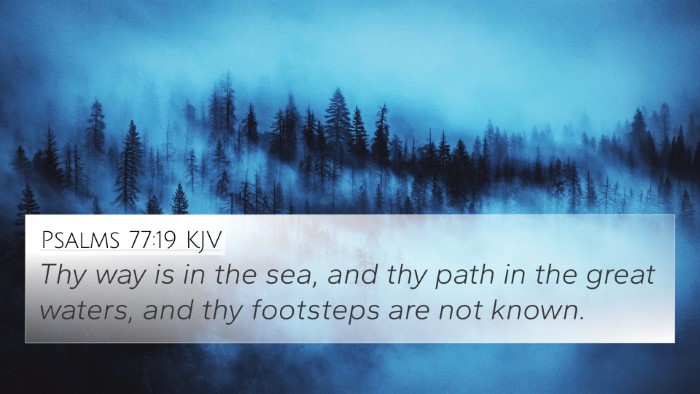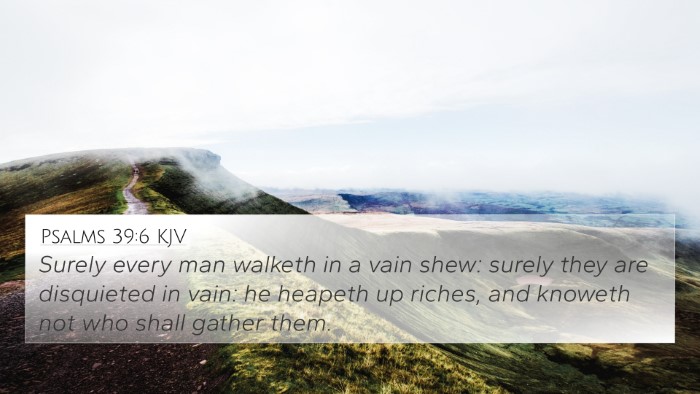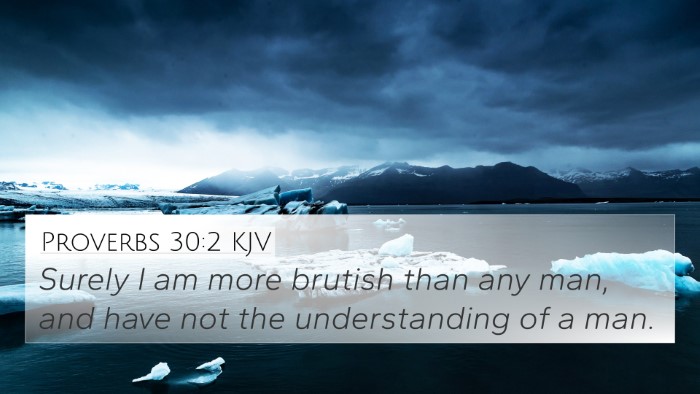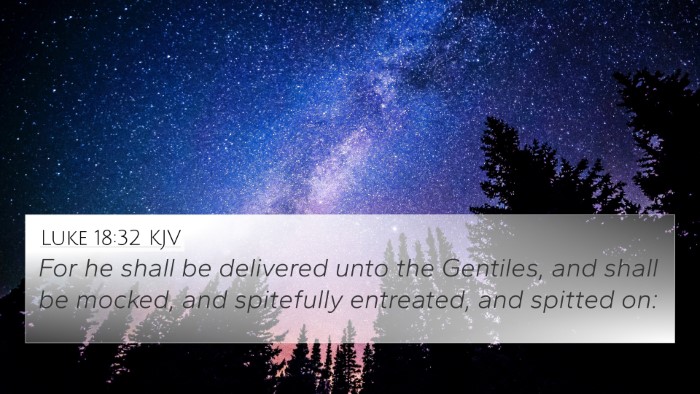Psalms 73:16 - Interpretation and Meaning
Psalms 73:16 states, "When I thought how to understand this, it was too painful for me." This verse captures a moment of deep contemplation by the psalmist as he grapples with the struggles of faith amidst the apparent prosperity of the wicked compared to his own sufferings.
Verse Overview
In this passage, the psalmist reflects on the difficulties of reconciling the existence of suffering among the righteous with the prosperity experienced by the wicked. As we analyze this verse, several important themes emerge:
- Spiritual Struggle: The psalmist's inner turmoil reflects a broader theme of doubt and confusion faced by many believers.
- Understanding Pain: The word "painful" suggests the intensity of his emotional struggle, indicating that seeking understanding often comes at a cost.
- Divine Justice: The verse leads to a quest for understanding God's justice in the world.
Commentary Insights
Drawing from various public domain commentaries, we can derive a deeper understanding of this verse:
Matthew Henry's Commentary
Matthew Henry emphasizes the emotional weight carried by the psalmist. He explains that the psalmist felt overwhelmed by the paradox of the prosperity of the wicked, causing him distress. He notes the importance of acknowledging doubts but also seeking resolution and clarity through faith and prayer.
Albert Barnes' Commentary
Albert Barnes provides insight into the nature of the psalmist’s struggle, highlighting that it leads him to a deeper contemplation of God’s ways. He argues that such thoughts are common and reflect the human condition when faced with suffering. Barnes reassures readers that it is normal to question and seek divine understanding.
Adam Clarke's Commentary
Adam Clarke expands on the idea that the suffering of the righteous often leads to confusion and despair. He acknowledges the difficulty of grasping the reasons behind such disparities in life circumstances and encourages believers to search for answers within the Scriptures, as understanding often comes with divine assistance.
Related Bible Verse Cross-References
This verse connects powerfully with various other verses throughout the Bible that address similar themes of struggle, suffering, and divine justice. Here are ten related cross-references to consider:
- Psalms 37:7: "Rest in the Lord, and wait patiently for Him." - A reminder to trust God amid difficulties.
- Psalms 73:1: "Truly God is good to Israel, to such as are pure in heart." - Establishing the foundational belief in God’s goodness despite apparent contradictions.
- Proverbs 3:5-6: "Trust in the Lord with all your heart, and lean not on your own understanding." - Encouraging faith beyond human reasoning.
- Job 21:7: "Why do the wicked live and become old, yes, become mighty in power?" - Job echoes similar sentiments of questioning divine justice.
- Ecclesiastes 7:15: "I have seen everything in my days of vanity; there is a just man who perishes in his righteousness, and there is a wicked man who prolongs his life in wickedness." - Reflection on the perceived inequities in life.
- Romans 8:18: "For I consider that the sufferings of this present time are not worthy to be compared with the glory which shall be revealed in us." - A hopeful perspective on suffering.
- 2 Corinthians 4:17: "For our light affliction, which is but for a moment, is working for us a far more exceeding and eternal weight of glory." - Understanding temporary suffering in light of eternal reward.
- Hebrews 12:1-2: "Looking unto Jesus, the author and finisher of our faith..." - Encouragement to endure through trials.
- 1 Peter 5:10: "But may the God of all grace, who called us to His eternal glory by Christ Jesus, after you have suffered a while, perfect, establish, strengthen, and settle you." - Assurance of God's purpose in suffering.
- Revelation 21:4: "And God will wipe away every tear from their eyes." - Finally, a promise of justice and relief from suffering at the end of time.
Thematic Connections
The verse also opens a rich dialogue on several themes present throughout the Scriptures. These include:
- The Nature of God: Understanding God's character in relation to human suffering.
- The Role of Faith: How faith functions as a guide through confusion.
- Divine Justice: Exploration of God’s justice as seen throughout different Biblical narratives.
- Finiteness of Human Understanding: Acknowledgment of our limited capacity to understand God’s plans.
- The Promise of Hope: Assurance of hope and reconciliation found in God's ultimate plans for humanity.
Conclusion
In conclusion, Psalms 73:16 serves as a profound reminder of the struggles faced by believers when wrestling with faith amidst adversity. The insights gained from various commentaries enrich our understanding of this passage and encourage us to seek connections throughout Scripture. By employing tools for Bible cross-referencing, we can engage deeper with both the Old and New Testaments, reflecting on the broader themes and connections that arise from such contemplation.
As we engage in comparative Bible verse analysis, we come to recognize the invaluable insights that emerge from inter-Biblical dialogue, ultimately leading us closer to a fuller understanding of God's Word and His purposes for our lives.



